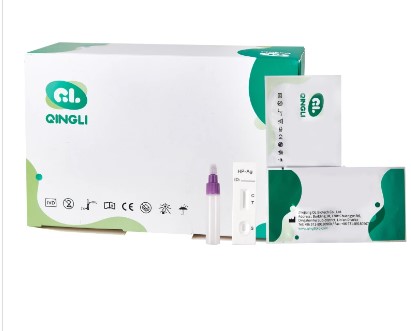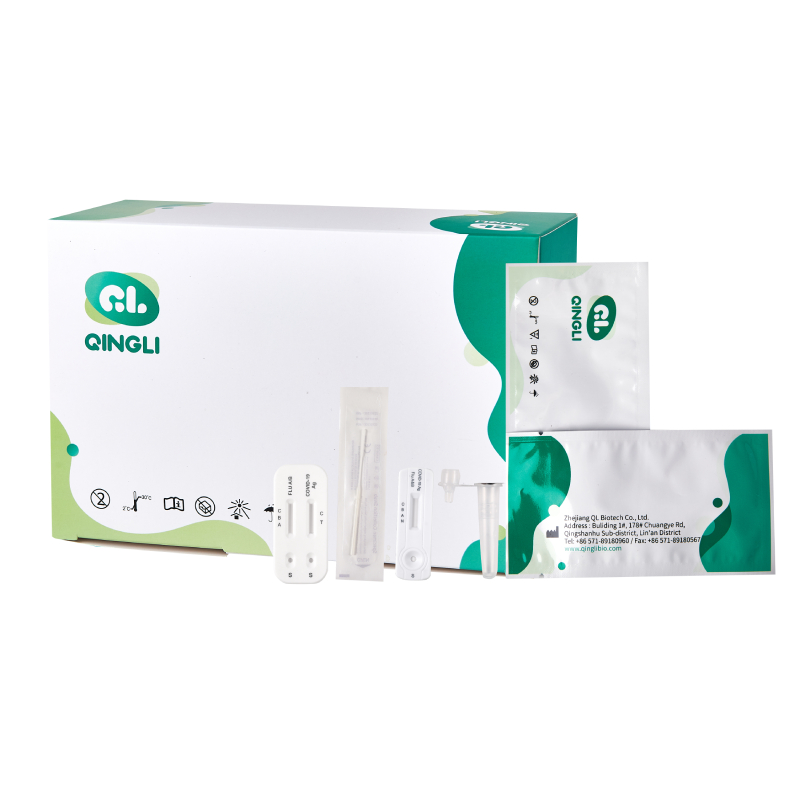What is the most reliable test for H. pylori?
Introduction to H. pylori Testing
Helicobacter pylori (H. pylori) is a gram-negative bacterium that colonizes the human stomach and is implicated in various gastrointestinal diseases such as peptic ulcers, chronic gastritis, and gastric cancer. Accurate diagnosis of H. pylori infection is crucial for appropriate treatment and management. Various diagnostic methods exist, ranging from non-invasive tests to more invasive approaches, each with its set of pros and cons. This article delves into the most reliable tests for H. pylori, discussing their methods, reliability, and specific use cases.
Non-Invasive Testing Methods
● Overview
Non-invasive tests for H. pylori are generally preferred due to their ease of administration and minimal discomfort for the patient. These tests include the Urea Breath Test(UBT),Stool Antigen Test (SAT), and Serological Testing.
● Pros and Cons
Non-invasive tests are favored for initial diagnosis and post-treatment monitoring due to their simplicity and non-requirement for endoscopy. However, their reliability and accuracy can vary, and certain conditions may necessitate more invasive techniques for a conclusive diagnosis.
Urea Breath Test
● How the Test is Performed
The Urea Breath Test (UBT) involves the patient ingesting a urea solution labeled with a carbon isotope. If H. pylori is present, the bacteria will metabolize the urea into carbon dioxide, which can be detected in the patient's breath.
● Accuracy and Reliability
The UBT is one of the most reliable non-invasive tests for H. pylori, with a sensitivity and specificity exceeding 95%. Its high accuracy makes it an excellent choice for both initial diagnosis and post-eradication confirmation.
Stool Antigen Test
● Procedure for Stool Sample Testing
The Stool Antigen Test (SAT) involves analyzing a stool sample for the presence of H. pylori antigens. This test is particularly advantageous for its non-invasiveness and the convenience of sample collection.
● Effectiveness and Limitations
The SAT is highly effective, with a sensitivity and specificity comparable to the UBT. However, its accuracy can be affected by recent antibiotic or proton pump inhibitor use, which may necessitate additional testing for confirmation.
Serological Testing
● Methods of Antibody Detection
Serological testing detects antibodies against H. pylori in the patient's blood. This method is relatively simple and quick, often used in primary care settings.
● Reliability and False-Positive Rates
While serological tests are useful for initial screening, they have a higher rate of false positives compared to other tests. Antibodies can persist for months or years after eradication, making it unsuitable for confirming active infection or post-treatment success.
Invasive Testing Methods
●Overview
Invasive tests involve obtaining tissue samples via endoscopy, allowing for direct detection of H. pylori. These tests include Endoscopic Biopsy with Histology, Rapid Urease Test (RUT), and Molecular Testing (PCR).
● Scenarios Requiring Invasive Testing
Invasive methods are generally reserved for cases where non-invasive tests are inconclusive or when there are symptoms suggesting complications such as gastric ulcers or cancer.
Endoscopic Biopsy with Histology
● Procedure Details
During an endoscopy, a biopsy sample is taken from the stomach lining and analyzed under a microscope to identify H. pylori. This method provides direct visual confirmation of the bacteria.
● Diagnostic Accuracy
Endoscopic biopsy with histology is highly accurate, especially when combined with additional tests like culture or PCR. It is considered the gold standard for diagnosing H. pylori, particularly in complicated cases.
Rapid Urease Test (RUT)
● How the Test Works
The Rapid Urease Test (RUT) involves placing a biopsy sample in a medium containing urea. If H. pylori is present, the urease enzyme will hydrolyze the urea, leading to a color change in the medium.
● Reliability Compared to Other Tests
RUT is highly reliable, providing results within hours. While not as sensitive as histology, its rapid turnaround makes it a valuable tool in clinical settings.
Molecular Testing (PCR)
● Basics of Polymerase Chain Reaction
Polymerase Chain Reaction (PCR) amplifies specific DNA sequences of H. pylori, allowing for precise and rapid detection. This method is highly sensitive and specific.
● Advantages in Detecting H. pylori
PCR can detect even low levels of H. pylori, making it ideal for confirming infection in cases where other tests are inconclusive. Its ability to identify antibiotic resistance genes also aids in selecting appropriate treatment regimens.
Choosing the Most Reliable Test
● Factors Influencing Test Choice
The choice of H. pylori test depends on various factors, including the patient's clinical presentation, previous treatments, and available resources. Non-invasive tests like the Urea Breath Test and Stool Antigen Test are suitable for initial diagnosis and follow-up, while invasive methods are reserved for complex cases.
● Recommendations for Healthcare Providers
For accurate diagnosis and effective management of H. pylori infection, healthcare providers should use a combination of non-invasive and invasive tests as appropriate. The Urea Breath Test is recommended for its high accuracy and ease of use, while histology and PCR provide definitive confirmation in complicated cases.
Introduction to H.Pylori Ag Rapid Test
●Overview
The H.Pylori Ag Rapid Test is a convenient, non-invasive test designed for quick detection of H. pylori antigens in stool samples. This test is particularly useful in clinical and laboratory settings for its simplicity and rapid results.
● Applications in Clinical Settings
The H.Pylori Ag Rapid Test is widely used in both primary care and specialized gastroenterology settings. Its ease of use makes it an excellent choice for initial screening and post-treatment monitoring of H. pylori infection.
Wholesale H.Pylori Ag Rapid Test
● Market Availability
Wholesale H.Pylori Ag Rapid Test
kits are readily available from various suppliers, making them accessible for healthcare facilities of all sizes. Bulk purchasing options provide cost-effective solutions for large-scale testing programs.● Benefits for Healthcare Providers
Purchasing wholesale H.Pylori Ag Rapid Test kits ensures a consistent supply of reliable testing materials, aiding in the efficient diagnosis and management of H. pylori infections. This is particularly beneficial for clinics and hospitals with high patient volumes.
China H.Pylori Ag Rapid Test
● Manufacturing Standards
China is a leading manufacturer of H.Pylori Ag Rapid Test kits, adhering to stringent quality control standards to ensure reliability and accuracy. Chinese manufacturers leverage advanced technologies and extensive expertise in diagnostic reagent production.
● Global Reach
Chinese H.Pylori Ag Rapid Test kits are exported worldwide, meeting the needs of diverse healthcare markets. Their affordability and high quality make them a popular choice among international healthcare providers.
H.Pylori Ag Rapid Test Manufacturer
● Leading Manufacturers
Several leading manufacturers specialize in producing H.Pylori Ag Rapid Test kits, offering diverse product lines to meet varying clinical needs. These companies focus on innovation and quality to provide accurate and reliable diagnostic solutions.
● Quality Assurance
Top manufacturers implement rigorous quality assurance protocols to ensure the consistency and reliability of their H.Pylori Ag Rapid Test kits. This commitment to quality is crucial for maintaining the trust of healthcare providers and patients.
H.Pylori Ag Rapid Test Factory
● Production Facilities
State-of-the-art production facilities equipped with advanced technologies are essential for the efficient manufacturing of H.Pylori Ag Rapid Test kits. These facilities focus on high-volume production while maintaining stringent quality control.
● Innovation in Manufacturing
Continuous innovation in manufacturing processes enhances the quality and reliability of H.Pylori Ag Rapid Test kits. Factories invest in research and development to improve test accuracy and ease of use, benefiting both healthcare providers and patients.
H.Pylori Ag Rapid Test Supplier
● Supply Chain Management
Reliable suppliers play a crucial role in ensuring the consistent availability of H.Pylori Ag Rapid Test kits. Effective supply chain management practices help maintain a steady inventory, meeting the demands of healthcare facilities.
● Customer Support
Suppliers offer comprehensive customer support, providing training and resources to healthcare providers for the effective use of H.Pylori Ag Rapid Test kits. This support ensures accurate test administration and interpretation.
Conclusion and
● Recommendations
● Summary
In conclusion, the most reliable test for H. pylori depends on the clinical context and available resources. The Urea Breath Test and Stool Antigen Test are excellent non-invasive options, while endoscopic biopsy with histology and PCR offer definitive diagnosis in complex cases. The H.Pylori Ag Rapid Test provides a convenient and quick solution for detecting H. pylori antigens, with widespread availability from various manufacturers and suppliers.
● Recommendations
Healthcare providers should consider a combination of tests for accurate diagnosis and follow-up of H. pylori infections. The choice of test should be guided by the patient's clinical presentation and the specific requirements of the healthcare setting.
Company Introduction: QL biotech
Zhejiang QL Biotech Co., Ltd is a company that focuses on producing and researching diagnostic reagents. Their management and R&D team have over 20 years of experience in product development and production within the IVD industry. The company's primary products include infectious disease products, cardiac marker detection products, DOA products, and tumor marker products. At QL Biotech, we strive to make everyday life easier, supported by our core values of integrity, commitment, respect, openness to change, and passion.





